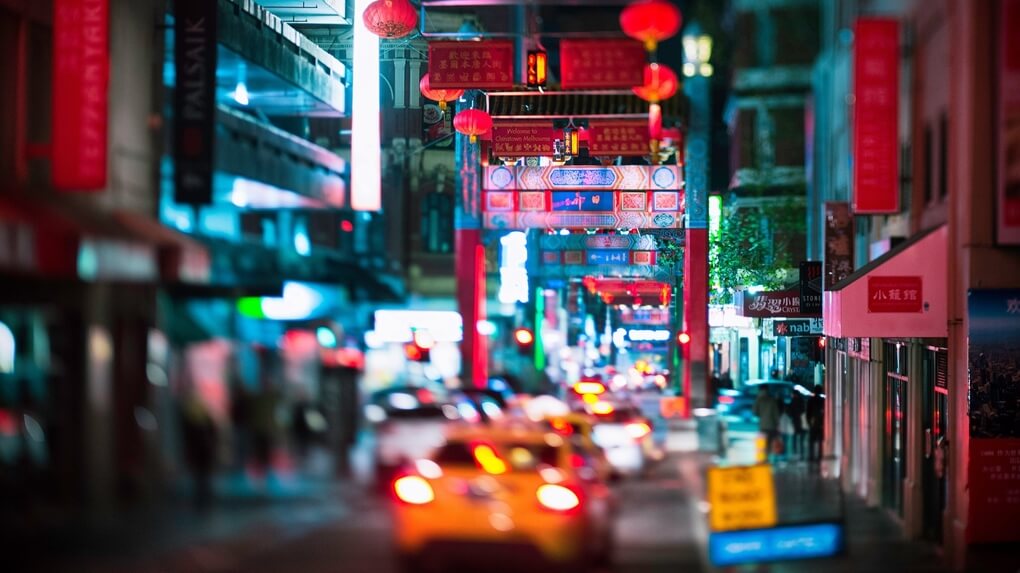We can’t ostracize or alienate China, but India and other Asian Nations can be the Plan A

The Trudeau government is seeking economic alternatives to China following the dispute over the Meng Wanzhou-two Michaels affair. India and other Southeast Asian Nations can now be the solution on the table to diversify the Canadian economic dependency. However, whatever the future holds, the experts say that “we can’t ostracize China”.

John Meehan, who was appointed Director of the Bill Graham Centre for Contemporary International History (BGCCIH) at Trinity College, shared his thoughts about the past and recent relationship between Canada and China, and said that the consequences to the world when China becomes the next superpower “remains to be seen”. In the meantime, Meehan reiterates that Canada has a role to play on the international scene: to encourage China to respect human rights, rule of law and intellectual property.
A historian by training, Dr. John Meehan has a MA in International Relations from the School of Advanced International Studies at Johns Hopkins University and a PhD in History from the University of Toronto. His publications include Canada’s Early Relations with China and Canadian foreign relations and Asia Pacific studies.
Milénio Stadium: How do you presently define the relationship between Canada and China?
John Meehan: It’s quite challenging at the moment, because we’ve come from a little bit of a deep freeze with several issues including the detainment of the 2 Michael’s for more than 1,000 days. Although they’ve been released, relations are quite tense at the moment. For the next few months I think it will continue to be challenging. There’s been a lot of damage to the relationship, not just with the 2 Michael’s but also with Canada’s criticism of the China’s treatment of ethnic minorities, such as the Uyghurs, China’s handling of the Hong Kong situation and a lot of fears over Taiwan. I don’t see any common ground on these issues. Many other countries continue to criticize China. China at first part, seems to be disregarding the criticism and just going its own way and it’s losing a lot of allies in the world in the process. I don’t see how that can help China in the long run.
MS: What lessons should we learn with the Meng Wanzhou-two Michaels affair?
JM: It’s definitely a cautionary tale, I know many business professionals who are pulling out of China, they’re afraid that their intellectual property won’t be respected, that the rule of law won’t be respected and even fearing for their personal safety. It doesn’t create a positive business climate, that’s one thing we can learn. But in general, for the average person, I think people are more wary of visiting China, even despite COVID-19, it’s not high on most people list as a travel destination. They’ve created a climate of uncertainty and even to some extent fear where people are afraid to go there.
MS: What consequences would the world endure if China became the next superpower?
JM: That remains to be seen. I mean certainly they are on the way to becoming a superpower, they will eclipse the United States as the largest economic power in the next few decades and perhaps also as the world’s largest military power. So, I think they are well on their way. The effects of that, I’m not sure, but again this lack of respect for rule of law, human rights and intellectual rights – I think it should be a cause of concern for many people. It remains to be seen, but many people are not convinced that this is a good thing.
MS: Throughout the pandemic, we noticed a significant slowdown of trade when China’s factories had closed. Why does China dominate world trade?
JM: I think there are different reasons for that, in many ways Canada and other countries enabled this to happen. If you remember back to the Bill Clinton presidency years, we actually wanted China to become part of the world trade organization because we thought that would increase trade, increase the standard of living in China and the citizens would demand more respect for human rights. That has not happened. And also, don’t forget who is the largest purchaser of what’s made in China, it’s the rest of the world, including us. So, every time we shop at Walmart or whatever most of what we are buying is made in China. This is not sustainable, but we have to recognize that we are pretty interdependent with China. Their rise is largely export driven, so we’ve played a role on that to a large extent.
MS: How can we encourage China to respect human rights, rule of law and intellectual property?
JM: We can continue to push for this in international forums, such as the United Nations. I noticed the Trudeau government lately has been talking about the Indo-Pacific region which completely ignores China in a way, and they quietly began free trade talks with India and Asia. The Association of Southeast Asian nations. They don’t seem to have much of a China strategy, I hope the government can develop one that is clear. We always have to keep the lines of communication open with China, I don’t think you want to ostracize or alienate China. But at the same time, I think we have to continue to challenge China to be a responsible member of the world community.
MS: If we can’t rely on China, what are the other options? India? Other Asian Nations? What is Plan B in this instance?
JM: I think Plan B has become Plan A because as I said before, the Trudeau government has begun or renewed free trade talks with those countries. India has about the same population as China, 1.3 billion, it’s a democracy in theory anyway, it’s got a democratic tradition like Canada, and so they are realising ok we’ve got more affinity perhaps with India and our investments are going to be respected. India is certainly not perfect, it’s got a long way to go, but that’s what I see Canada doing now is reaching out to the rest of Asia and building those links. Again, I would warn against ostracizing China, but at the same time they have to fill their willingness to collaborate under the current leadership Xi Jinping is certainly trying to make China a great power. I know this is in China’s interests, but I’m not so sure it’s in China’s long-term interests to alienate the rest of the world. It remains to seen how this change is going to affect China. Historically, China has had major social upheaval every few generations, we can go back in the last 200 years and see or every 20 to 40 years to see there’s some major revolution or period of domestic instability. That could happen in China again and if that were to happen that would have a huge impact on the world economy. So, we cannot ostracize China, we have to build bridges, but at the same time we have to be firm with them and let them know that they have to abide by international laws and standards.
MS: Using your own words, if Plan B becomes Plan A, is it still possible to prevent China from becoming a superpower?
JM: I think it’s pretty much inevitable, it’s happening now and again it is to work with that reality. I don’t think we can prevent it. China has been investing all throughout the developing world, building lots of infrastructure with the new silk road. I don’t think Canada or other countries can prevent it, I think they have to find a way of working with China while strengthening our partnerships with other countries within Asia that are more accommodating.
MS: We heard in the recent throne speech that Canada wants to diversify to avoid economic dependency from China. However, some experts say that it will be complicated to negotiate with India because it is a federation of broad, regional interests. Do we have reasons to be optimistic?
JM: I think we can fairly optimistic about India, we have a long-standing relationship and we have a lot of Indo-Canadians. As I said earlier India it’s not perfect, it’s got his challenges as we saw with the farmers protest but I’m pretty hopeful about it. I think Canada is doing the right thing.
Joana Leal/MS








Redes Sociais - Comentários